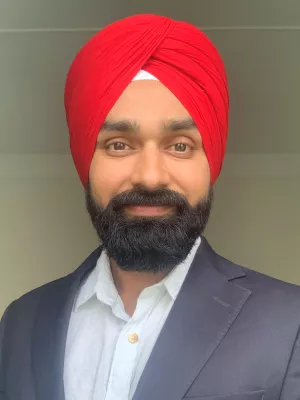
Jagdeep Singh
Forskare

An assessment of achievements of the WEEE Directive in promoting movement up the waste hierarchy : experiences in the UK
Författare
Summary, in English
Rapidly developing technology and an increasing number of products containing electrical or electronic functions, has led to discarded electrical and electronic equipment (EEE) being one of the fastest growing waste streams. The European Union (EU) has enacted several iterations of the Waste Electrical and Electronic Equipment (WEEE) Directive to address this complex waste stream. However, recycling dominates treatments for e-waste, despite the established ‘waste hierarchy’ showing waste prevention and reuse are generally preferable to recycling. This paper reports on 30 semi-structured interviews, undertaken across the EEE value chain, examining the impact of the WEEE Directive in the UK. The interviews confirmed that reuse takes place for a limited number of product types, mostly on a small scale. Additionally, whilst legislation has prompted innovation in recycling and higher capture rates, resource recovery is in practice limited to easily salvageable materials, whilst recovery of critical raw materials is often neglected. Furthermore, there is confusion around available collection networks, particularly for small WEEE, which consistently appears in residual waste streams. The waste hierarchy remains the key component of EU waste strategy and moving to the higher levels of the waste hierarchy is an essential part of achieving sustainable waste management and moving towards a circular economy. The paper proposes a series of measures to this end: promoting recovery routes and practices that facilitate reuse of suitable products, adapting recycling technology to increase recovery of critical raw materials and targeted policies to encourage the application of the waste hierarchy within a resource efficiency-oriented framework.
Avdelning/ar
- Internationella miljöinstitutet
Publiceringsår
2019
Språk
Engelska
Sidor
417-427
Publikation/Tidskrift/Serie
Waste Management: international journal of integrated waste management, science and technology
Volym
87
Dokumenttyp
Artikel i tidskrift
Förlag
Elsevier
Ämne
- Environmental Sciences
- Environmental Management
Nyckelord
- Circular economy
- Material flows
- Producer responsibility
- Resource recovery
- Reuse
- WEEE
Status
Published
Projekt
- Urban Reconomy: sharing for circular resource efficiency
ISBN/ISSN/Övrigt
- ISSN: 0956-053X